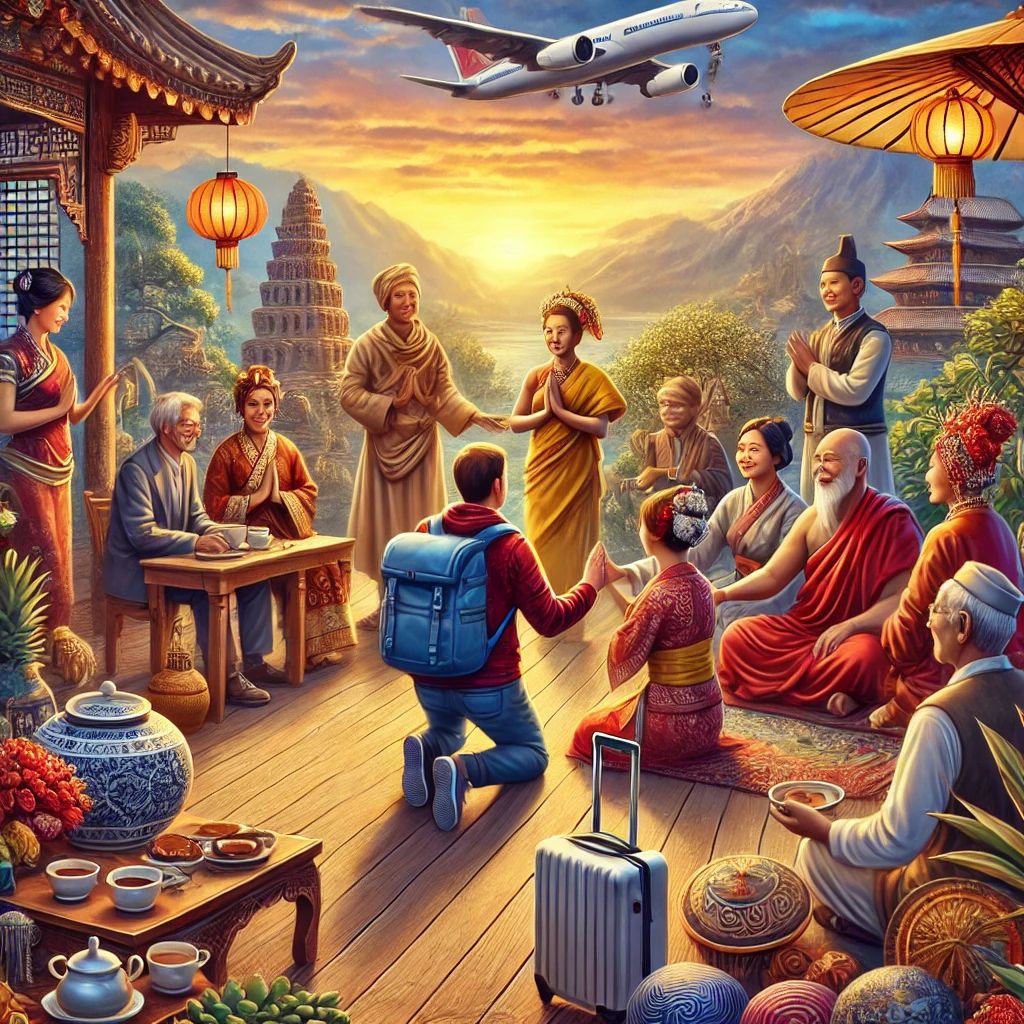
Embracing Cultural Diversity Through Adaptation
Traveling to new places introduces you to a variety of cultural norms, traditions, and ways of life. Adapting to these norms is more than a matter of politeness—it’s a way to foster deeper connections, expand your worldview, and enrich your travel experience. Here’s why adapting to cultural differences is essential and how to do it with respect and mindfulness.
1. Build Meaningful Connections
Respecting cultural norms allows you to connect with locals on a deeper level:
Show respect: Following local customs demonstrates your appreciation for the culture and people.Encourage trust: When you adapt to the norms of a new place, locals are more likely to engage with you openly.Foster understanding: Learning about and embracing cultural differences strengthens relationships and bridges gaps.2. Expand Your Perspective
Adapting to different norms challenges your worldview and encourages personal growth:
Gain new insights: Understanding why people behave a certain way can help you see the world from a different perspective.Challenge stereotypes: Immersing yourself in diverse cultures dispels misconceptions and broadens your understanding of humanity.Grow as a person: Flexibility and open-mindedness developed through cultural adaptation are valuable life skills.3. Enhance Your Travel Experience
Respecting local customs makes your journey more enjoyable and authentic:
Avoid misunderstandings: Adapting to norms prevents unintentional offenses or awkward situations.Participate fully: Engaging in traditions, celebrations, or practices allows you to experience the culture authentically.Gain insider access: Locals are often more welcoming when travelers respect their way of life, offering tips or invitations to unique experiences.4. Promote Global Harmony
Cultural adaptation contributes to mutual respect and understanding on a broader scale:
Be an ambassador: Your respectful behavior reflects positively on your home culture and fosters goodwill.Encourage inclusivity: Adapting to norms shows that you value diversity and are willing to learn from others.Support cultural preservation: Respecting traditions helps maintain cultural heritage for future generations.5. Tips for Adapting to Cultural Norms
Here’s how to navigate cultural differences with grace and respect:
Research before you go: Learn about local customs, etiquette, and taboos to avoid cultural missteps.Observe and ask: Pay attention to how locals behave and ask questions if you’re unsure about specific practices.Practice humility: Acknowledge that you’re a guest in someone else’s culture and be open to learning from mistakes.Learn key phrases: Basic greetings or phrases in the local language show effort and respect for the culture.6. Common Cultural Norms to Be Aware Of
While each culture is unique, here are some areas where norms often differ:
Greetings: The way people greet each other varies widely, from handshakes to bows to cheek kisses.Dining etiquette: Table manners, tipping customs, and the significance of food rituals differ across cultures.Dress codes: Some cultures have specific expectations regarding modesty or attire, especially in religious or formal settings.Communication styles: Directness, eye contact, and personal space norms can vary greatly from one culture to another.Conclusion: Enrich Your Journey Through Cultural Adaptation
Adapting to different cultural norms is a powerful way to enrich your travels and deepen your understanding of the world. By showing respect, practicing open-mindedness, and embracing diversity, you’ll create memorable experiences and build meaningful connections wherever you go. The journey to cultural adaptation begins with curiosity and a willingness to learn—start exploring today.
The article was prepared by Matt Lowery.



